
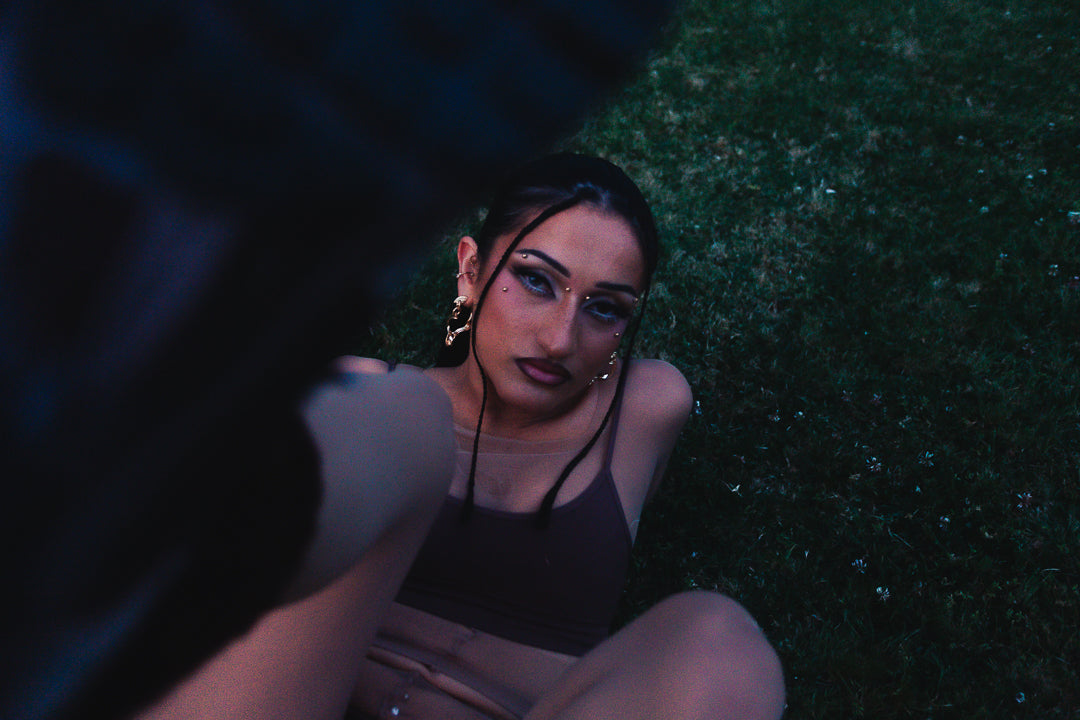
Braiding the bright threads of Latinx-influenced beats with a captivating voice and a beautifully unique understanding of how music moves us, JUPiTA doesn't just want to make new music – she's finding a new approach to making that new music, and it's all about the feel.
Together with production comrade bbsanii (with whom she's launched reggaeton 'n' bass duo bbsofii), JUPiTA is conjuring an otherworldly experience for listeners at home in Melbourne, amongst her Chilean-Australian community, and now beyond the queer Latinx family in which she's found her place.
We spoke to her about why violin is so hard for a five-year-old, discovering genre-fusion, and new track SiEMPRE.
Listen to JUPiTA's feature on our latest For The Honeys Volume 33 now.
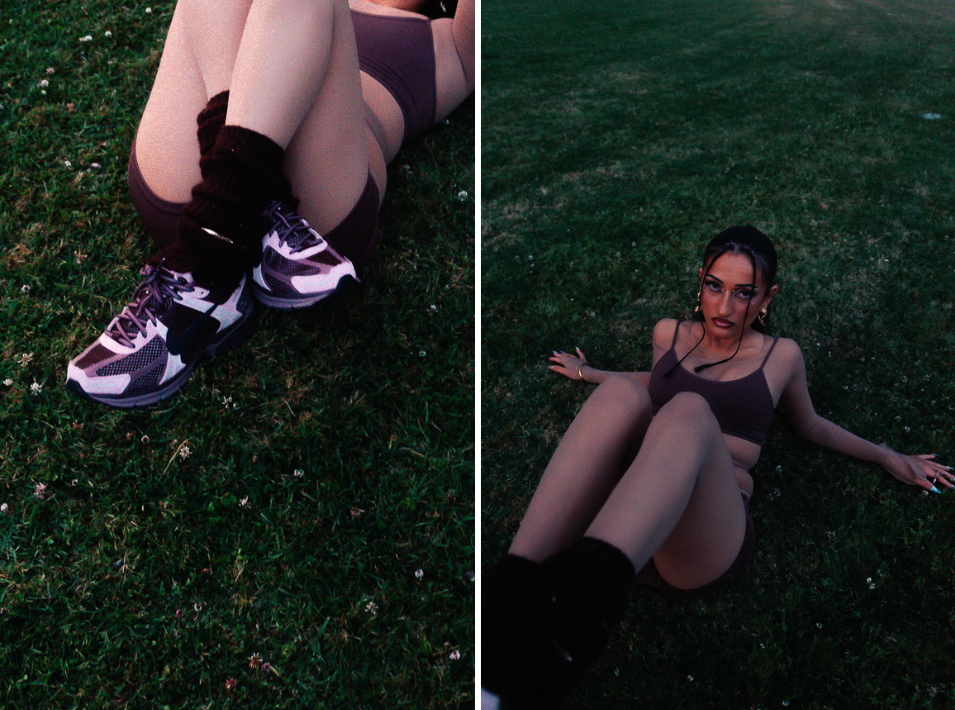
First off, thank you for introducing us to the Spanish word 'perrear'!
Yes! Perrear. It directly translates to 'twerk', but it's not that. It's to feel sexually liberated. It's more like, 'Let's go shake the negativity through our hips'! It's spiritually sexual, and sexually liberated.
We love it. You weave Spanish and English together throughout your lyrics, with a really beautiful fluidity. How do you approach writing in the two languages?
My Spanish is... not good when I speak to people [laughs]. And there's many factors why: one, I have a big Australian accent. Two, I speak Chilean-Spanish, which is like the Australian-English [of English]; there's a lot of slang, it's a little bit dirty, it's not one of the nicest Spanishes! So writing has been a big challenge for me, and it's got its positives and negatives.
Because I only know certain Spanish words – and there's only a certain amount of other words to rhyme with – it can be very creative.
Our new song SiEMPRE [meaning 'always' in Spanish] – I'm pretty proud of this one. It was really nice to fuse writing in my Latinx culture as well as production-wise – because reggaeton is Latinx! I mean, obviously music is just influence on influence on influence.
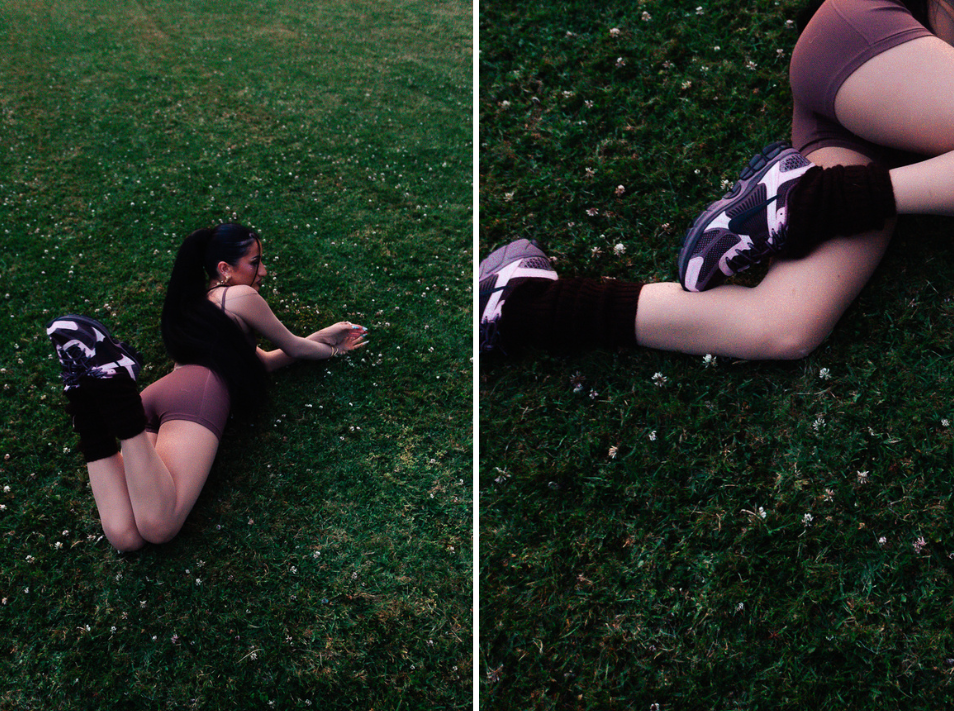
You grew up in the Chilean-Australian diaspora of Melbourne; tell us about how you found connection within the Latinx queer community – particularly coming from a culture which can be, traditionally, super old school with gender roles.
I did grow up in the Latin community, and I love the Latin community, although my parents are very conventional – more on the traditional side. My dad migrated 20 years ago so I'm first generation Chilean-Australian. It was hard. It still is hard.
I grew up in the straight Latin scene. I can't lie, that was pretty difficult. Women are oversexualised in a bit of a malicious way, instead of a liberating way. And my music is very sexy, I love to feel sexually liberated, I think all women do. It was hard for me to create in that sort of space.
I think that because there is such a beautiful queer community, to be able to associate myself with other Latinx artists has been so warm and welcoming. But that's only been in the past year for me. I've been sticking to who I am as a musician – which is to fuse shit together, to create things, to make you feel things. And Sani has been an absolute blessing to me, because they're the same.
You knew of musician Sani – who goes by bbsanii, and with whom you've created the production duo bbsofii, which is where track SiEMPRE, collaborating with London producer Blue Ringed Baby comes in – at high school. What was your musical life like during those years?
I have always been very musical. The first instrument I picked up was a classical violin; my parents definitely forced that one in, it wasn't a choice! I'd literally just turned five.
[But I'm] a demon child, I was in a lot of alternative bands in school. Saani was in a band – they have an alternative band now called In Xira, they're incredible, I'm obsessed – and I was doing vocal lessons with a really great teacher who was jazz-based. It wasn't swung-scat jazz – but I did do that! I really do think it helped me melodically, and taught me how to freestyle in a way that I wouldn't have been able to do if I hadn't done jazz.
But the fusion of genres came about by me also being a lyricist. I feel like I learned how to sing [through] violin, because that's how I learned to get my pitch accuracy. And I guess intellectually, I learned how chords and melodies move through each other, through jazz.

That's a great way to learn how to sing, through violin – because there's no frets to help you find the notes!
No frets! Yes! You think a five-year-old can sight-read?! Everything I did was by ear. I grew up listening to classical music, but then Sani opened up a lot of doors for me, because they're really into dance music.
When did you and Sani really begin to create music together?
Probably at the very end of 2021 – it's been nearly two years now. We've been trying to create new sounds: a new way of music, I like to think. We call it 'reggaeton 'n' bass', but it's more jungle-drum 'n' bass, but it's reggaeton influenced... People know of it from our live shows. A lot of our music isn't released – we've been playing live, which is great to showcase.
We're both Latinx; Sani's Colombian. 'bbsofii' comes from Sani's [moniker] 'bbsanii' and my nickname, Sofi. We get together twice a week; we always make time to create. I always say, it doesn't even matter what we're doing, even if it's procrastinating. If we have a creative flow, let's just do it!
It's been a very, very beautiful sort of journey when it comes to writing because I've made a vow to myself where [I have to] use some sort of percussive element that's Latinx, whether it's cumbia or salsa snare, and there's a good mix of Afrobeats in there as well – there's a sort of crossover between them.
I also have to write in Spanish: I have to have at least a verse, or my chorus has to be in Spanish. That was also one of my vows that I made when it came to creating music.
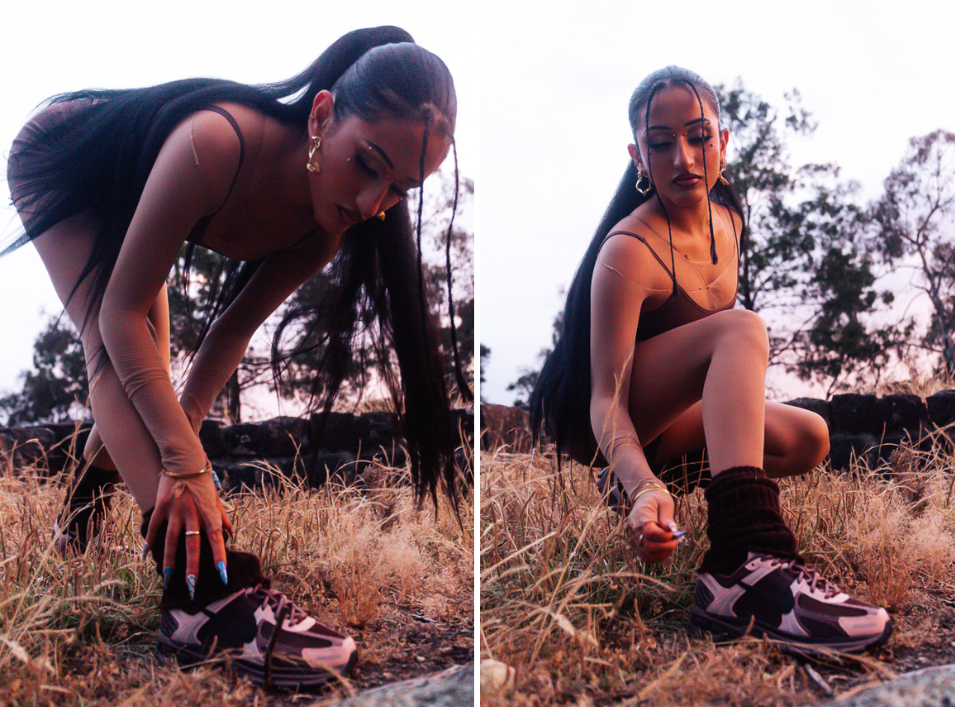
So, SiEMPRE: it's got this grimy, flickering, trip-hop beat, a kind of delicate harp that reminds us of Bjork, and then drops into a tubular club bassline. There's intrigue, there's mystery. It's awesome. How did you come to collab with Blue Ringed Baby to create it?
Blue Ringed Baby has a great following on TikTok, and their niche is jungle, drum 'n' bass, and sampling. One day they put on their TikTok, 'Send some drum 'n' bass stuff'. Sani saw it and was like, 'Should I send them this?' and I said, 'Send them everything!' We're trying to connect with people who have the same interests as us.
SiEMPRE was a lot of back and forth, back and forth. We created it, we left it, we forgot about it. And then we came back to it, and now, it feels right to be a third single for what will be an album... because there was just no pressure.
Overthinking is real!
Yes – you can put too much thought into it: 'What about this? What about that? Will people feel it, reciprocate, blah-blah-blah?' But with SiEMPRE, I genuinely just love it.
Blue Ringed Baby sent back the club mix and we were like 'Ohhh my gosh!' I recently listened back to the OG, OG skeleton of the beat and it's just so cool to see the progress.
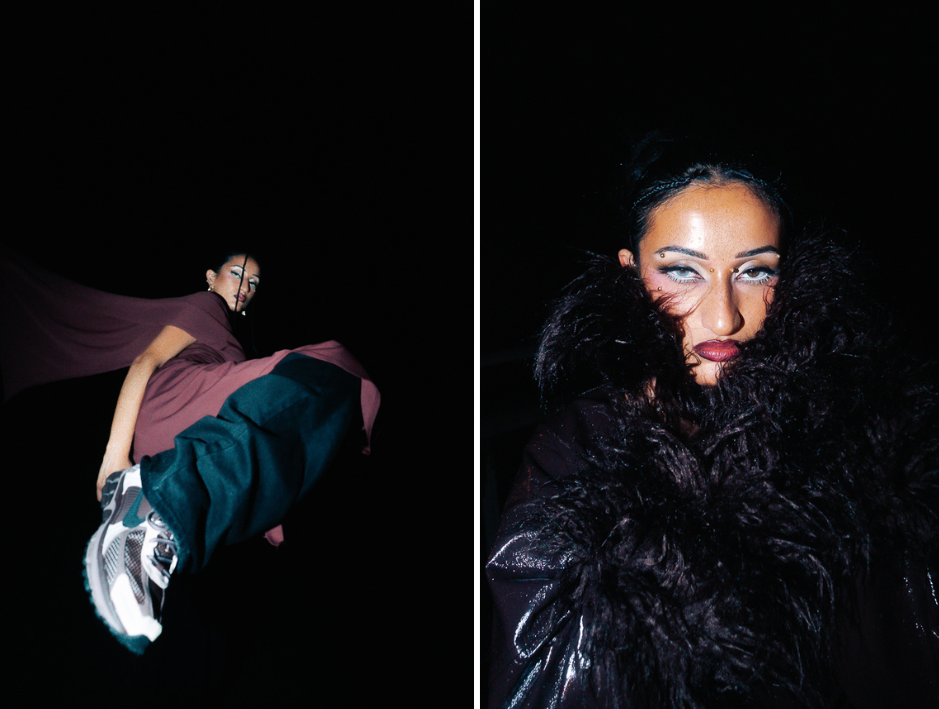
There's quite a bit of vocal manipulation going on in the mix, at certain points in the song. Did you ever, in the past, feel weird about digitally chopping up your voice?
It definitely took some time to be okay with it. Because the vocals are not as heavily manipulated in this track, it's alright, because the intent of it is about travelling through space, a disconnection. The way that the story flows is like, feeling sorry for yourself, and then being very unapologetic for it – it opens up, 'I am who I am/ My mind's always full of fantasies.
There are other songs where my voice is [tuned] very low, and it doesn't sound like me. It sounds alien. And I've grown to love it. I've grown to appreciate autotune!
This is such a huge thing for a singer – because the voice really is the most personal instrument out.
I'm so glad you said that. I've been doing lots of reading on the female anatomy and being a vocalist. There's a nerve in your body that is called your vagus nerve. It's very much connected to your sacral [plexus] which is your sexual energy. Sometimes it's hard for me to sing live when I'm, you know, on my moon or whatnot. Because I feel very, very vulnerable! And it's genuinely directly coming from my sacrum; making music to me is sacred in general, but singing is s a very spiritual thing for me.
So the physical connection between the vagina and the throat is the vagus nerve, which is the largest nerve in the body and it connects the brainstem to the sacral nerve plexus. And in a female embryo, the vocal cords and ovaries are one organ that then splits into two as the embryo develops – and that's the connection between the womb and the throat.
So sometimes it is like, 'Damn, these people are watching me have a great time!' – and I am, because I'm in that flow state, I'm in that very peaceful meditation, where I feel like home. And a woman's closest home is the womb, no? I mean – that's everyone's first home.
